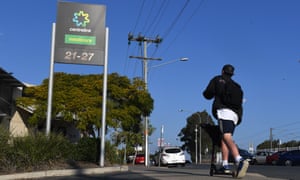Extract from The Guardian
Exclusive: Acoss survey finds 72% of respondents back boost to dole, which hasn’t grown in real terms for two decades
A huge majority of Coalition and Labor voters would back an increase
to Newstart to “cover basic living costs and to help people search for
jobs”, a new poll suggests.
Released as advocates campaign in marginal seats on the issue, the survey, conducted for the Australian Council of Social Service (Acoss), found that 72% supported a boost to the unemployment benefit, which has not risen in real terms in two decades.
The Essential survey of 1,000 voters suggests there is support across party lines for an increase to the dole. Labor voters were most likely to back a proposal to lift Newstart, with 81% in favour and only 12% against such a plan.
Coalition voters were split 66-22 in favour of an increase, while Greens supporters were also overwhelmingly in favour (79-12) about the idea.
The polling is in line with past research. Both major parties have
declined to support a specific increase to the payment, which is about
$280 a week – or $40 a day – for single people.Released as advocates campaign in marginal seats on the issue, the survey, conducted for the Australian Council of Social Service (Acoss), found that 72% supported a boost to the unemployment benefit, which has not risen in real terms in two decades.
The Essential survey of 1,000 voters suggests there is support across party lines for an increase to the dole. Labor voters were most likely to back a proposal to lift Newstart, with 81% in favour and only 12% against such a plan.
Coalition voters were split 66-22 in favour of an increase, while Greens supporters were also overwhelmingly in favour (79-12) about the idea.
In his strongest comments yet on the issue, Labor leader Bill Shorten said this month that his party’s review of the dole would “have to” be accompanied by an increase, but the opposition has been reluctant to commit to one.
Without a specific commitment, advocates fear an increase could be inadequate and recipients could have to wait for years into a new Labor government for it to come into effect.
The Coalition remains staunchly opposed to lifting Newstart in real terms. The prime minister, Scott Morrison, has previously said his preference would be to further increase the age pension if the Coalition were to raise any income support payments, although he has not proposed this either.
The Acoss chief executive, Cassandra Goldie, said: “The community understands that Newstart is not working – the rate of $40 a day has not been increased in real terms for 25 years while living costs for people on low incomes have gone through the roof.”
“We don’t need a review to know that Newstart needs to be increased. We’ve seen both the major parties commit to complex, expensive tax cuts without any need for a review. The social, economic and moral case is compelling.”
Australia’s unemployment benefit is the lowest among OECD countries. It is tied to the consumer price index, and therefore rises at a slower rate than other wage-linked payments, such as the age pension.
An Acoss proposal to lift the payment by $75 a week would cost the federal budget $3.3bn a year, and simultaneously lift consumer spending, Deloitte said last year.
While the government argues that Newstart is intended as a “transitory” payment, a report last year found that 44% of people on Newstart had been on it for more than two years and 15% for more than five years.
Voters in the Essential poll were asked on 8 April whether they agreed with the statement: “Newstart should be increased to cover basic living costs and to help people search for jobs.” The poll’s margin of error was 3%.
Those in high-income households were much more likely to oppose an increase (26%), compared with those on low incomes (12%).
The polling also found that 67% of voters polled believed that middle-income earners would be better off with secure funding for services such as health, education and aged care, rather than with a $20 tax cut a week.

No comments:
Post a Comment